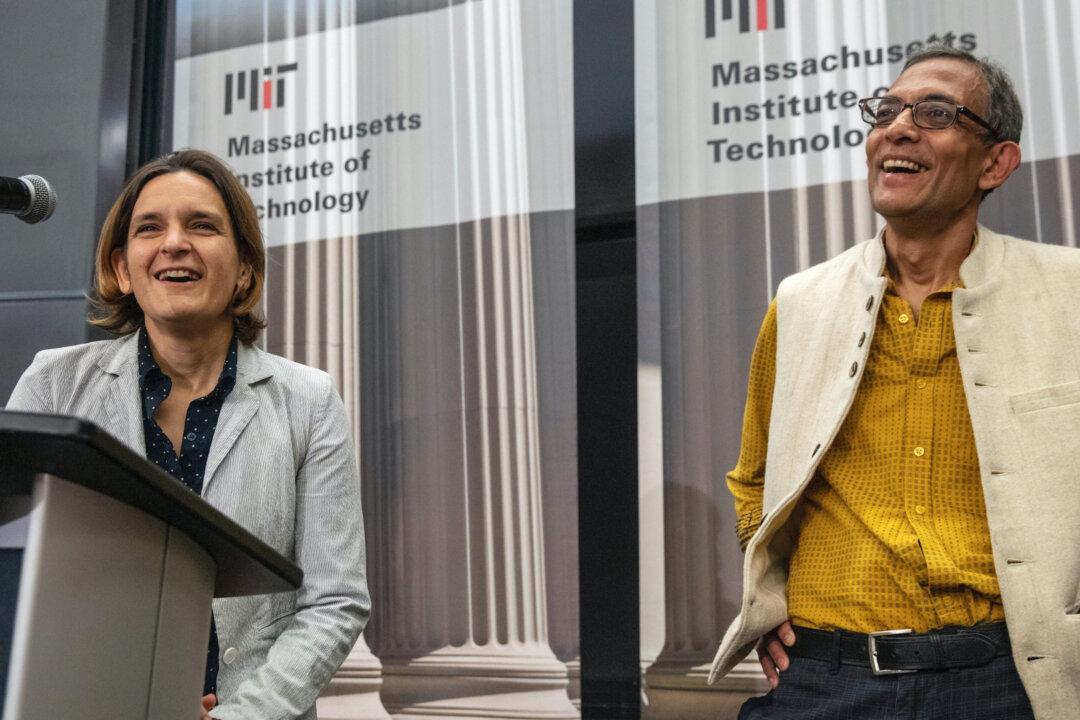Two researchers from the Massachusetts Institute of Technology and a third from Harvard University won the 2019 Nobel Prize in economics on Monday, Oct. 14. The award was for their groundbreaking research into what works, and what does not, in the fight to reduce global poverty.
The award went to MIT’s Abhijit Banerjee and Esther Duflo, and Harvard’s Michael Kremer. The 46-year-old Duflo is the youngest person ever to win the prize and only the second woman, after Elinor Ostrom in 2009.





